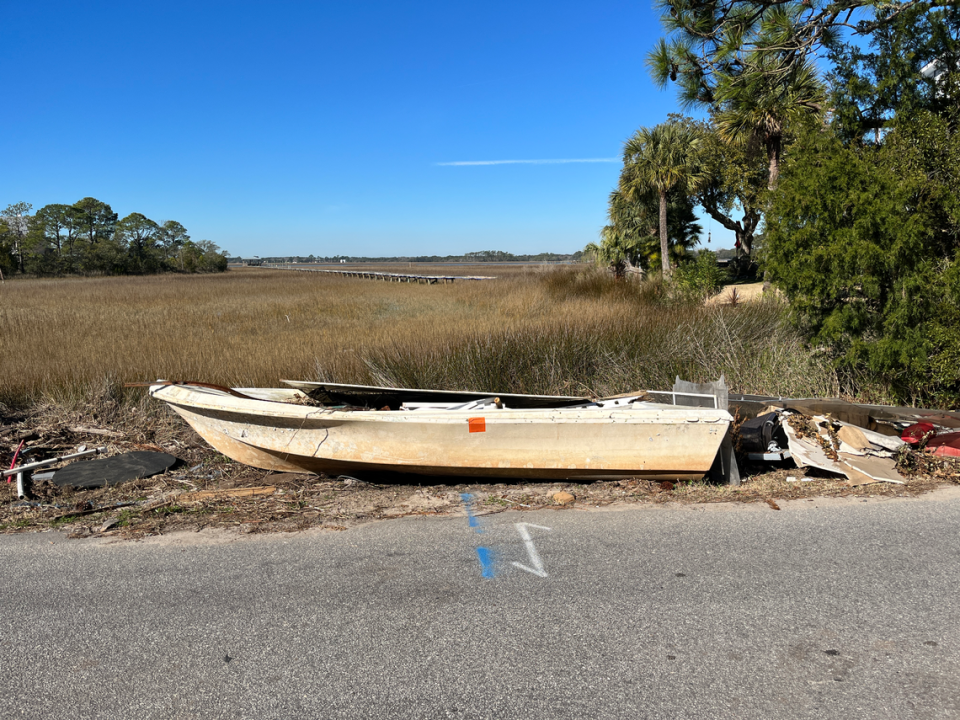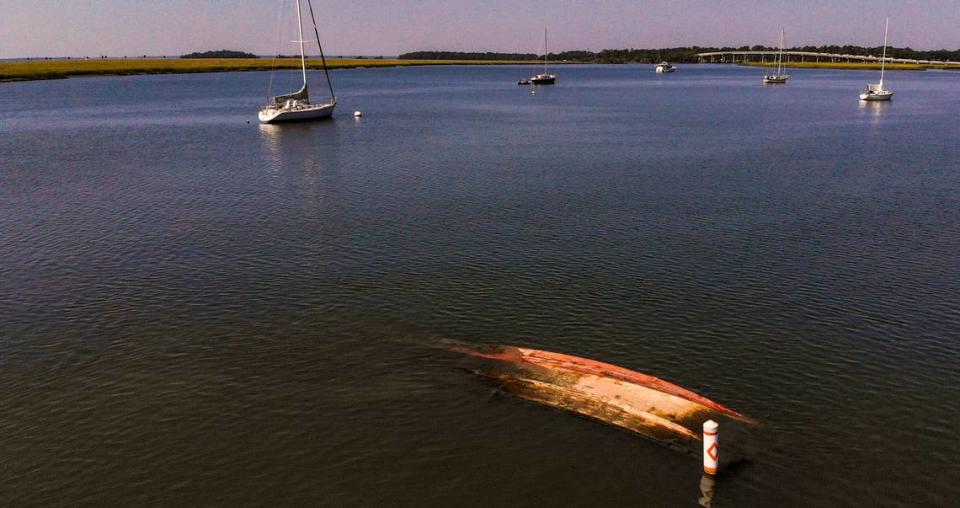Have a derelict boat you want to get rid of? SC might take it. Here are the details
Hundreds of abandoned and derelict boats litter South Carolina’s pretty shorelines and fish-filled waterways across eight coastal counties. But the state’s chief environmental agency aims to put a dent in the chronic problem with a first-of-its kind program for the state..
Through the Vessel Turn-in Program, unveiled earlier this month, residents and businesses in Beaufort, Berkeley, Charleston, Colleton, Dorchester, Georgetown, Horry and Jasper counties can simply apply to the state Department of Health and Environmental Control to have unwanted, at-risk or end-of-life vessels disposed of before they become abandoned.
“This is a first of its kind program in South Carolina,” said Liz Hartje, a project manager in DHEC’s Ocean and Coastal Resource Management.
Historically, DHEC has assisted local governments and others in acquiring funding, typically through NOAA, to remove boats that already have been abandoned. It is a costly process, Hartje said.
Preventing boats from being left behind in the first place is a new tactic in addressing the chronic environmental and navigation problem for the state’s coastal counties. The proactive service, which is free for those who qualify, is way to get out in front of the problem,” Hartje said. “It’s a little bit of a different way to tackle the issue and something we’re pretty excited about.”
DHEC officials studied what other states are doing across the country including Florida and Texas to develop the South Carolina pilot program.
Boat owners are required to fill out an application to be covered by the new program. If the state accepts the submission, owners can bring the vessel to a laydown yard 40 miles north of Charleston. If they can’t transport it, a contractor may be able to transport it for them. At the laydown yard, the vessel will be broken down and as much of it as possible will be recycled. The rest will be sent to a landfill. Fiberglass hulls will be broken down and mixed with other materials made into a fuel source at a local cement kiln.
“It’s going to be a case by case basis,” says Julia Chrisco, a Coast Resource project manager. “If people apply, I can look at every single detail about their vessel and come to a better conclusion.”
She expects to see a lot of sailboats and motorboats.
The project is currently being tested and Chrisco and Hartje hope it is popular so it can be implemented on a long-term basis.
“I think sometimes people aren’t sure how to take care of a vessel,” Hartje. This “makes it easier for them.”
While the state does not keep specific numbers, the National Oceanic and Atmospheric Administration (NOAA) says thousands of abandoned and derelict vessels litter ports, waterways and estuaries up and down the cost. These aging watercraft pollute marshes and coastal waters, Chrisco says, because once they get into the waterways or the salt marsh or oyster reef habitat, gas and oil can leak. They also create navigation hazards for working boats.
Some organizations pull abandoned vessels out of the water but the cost can reach into the tens of thousands of dollars to remove and transport them to a landfill.
It would not be unusual to spend more than $10,000 on a sunken vessel that needs to be floated up and placed on a barge, Hartje said.

The pilot project is being funded by the National Oceanic and Atmospheric Administration. It is part of the state’s five-year marine debris strategy.
Those interested in the pilot project should apply online at scdhec.gov/ADV.
The first vessel drop-off day will take place in the Charleston County area in June. Interested applicants from any of the state’s eight coastal counties are encouraged to apply online by April 5, to be considered.
Anyone with questions can learn more at scdhec.gov/ADV or email chriscj@dhec.sc.gov.
Some coastal South Carolina communities in Beaufort County are taking steps to address abandoned boats as well.
In 2022, the Port Royal Town Council unanimously approved an ordinance that requires a permit for mooring and bans anchoring within a certain distance of public boat landings, bridges, private docks and marinas. The Town of Hilton Head is considering an ordinance as well to address the problem.


